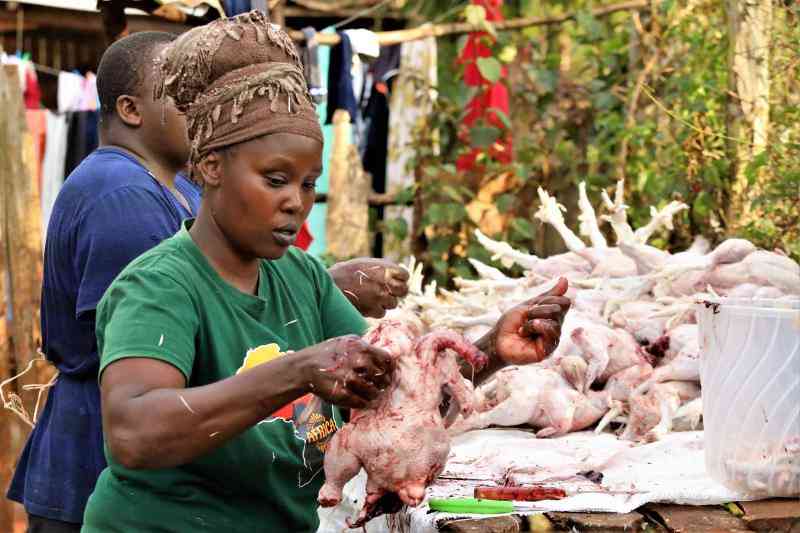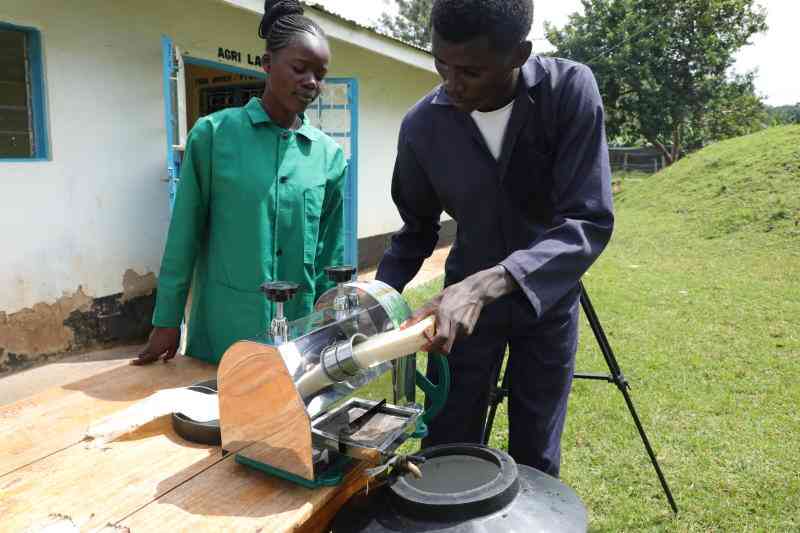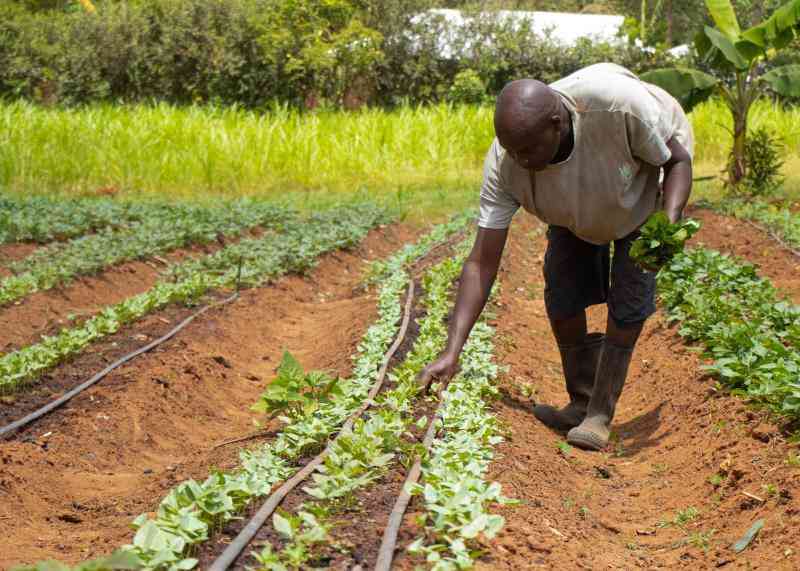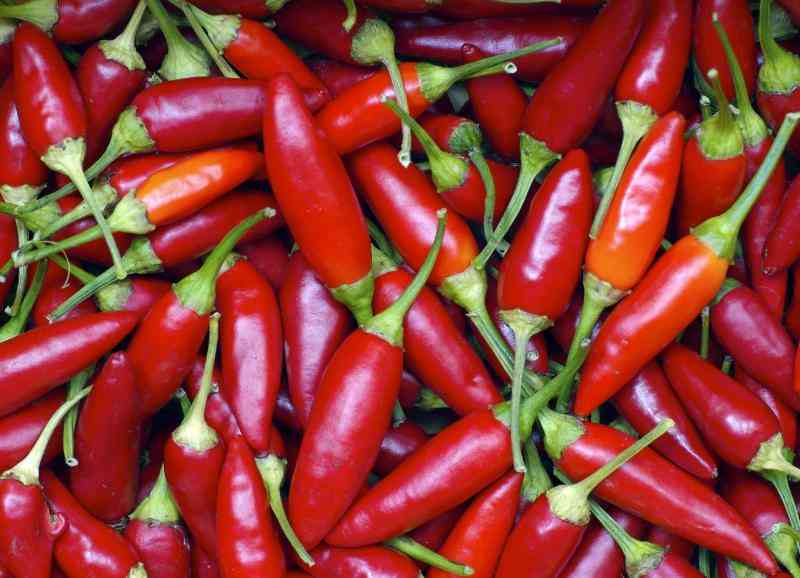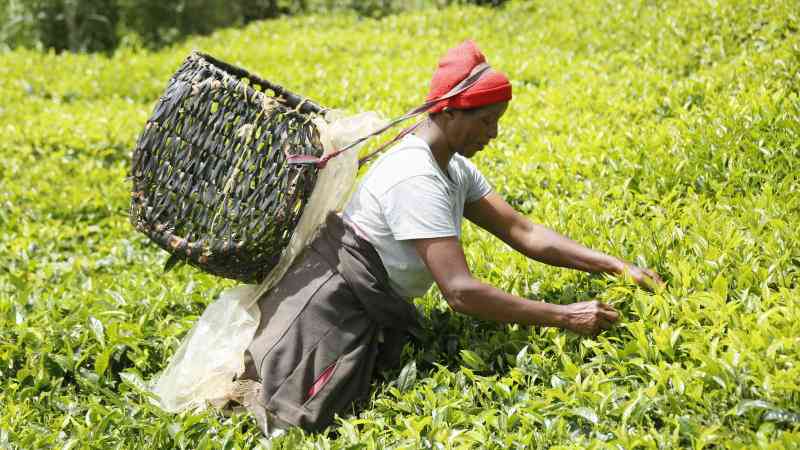Bee farmers earn millions in Narok

An idea which started out as a “let’s try and see” turned out to be a gold mine for nine cattle keepers in Narok County. The nine have since banked millions into their accounts and are spreading the sweetness of honey far and wide.
The sweet idea that was hatched by one Benjamin Lemoi, a resident from Narok South Sub-county in 2015 has seen quite a number of Maasai pastoralists ditch their old ways and venture into the sweet business of beekeeping and are not regretting.
Currently the Narok Beekeeping Initiative organization spearheaded by Lemoi has over 284 beekeepers of whom 61 are women from all over Narok County.
The group which has set up 832 beehives in Loita forest, Esupetai, Maji Moto, Nyakweri and parts of Mau forest has seen them harvest 200 to 300 tonnes of honey each year. Each hive rakes in 15kilogrames of honey of which a kilo is bought at Sh.400 from farmers and sold at Sh800.
To sweeten the deal, the enterprise is fetching a pleasant Sh.9 million annually from the sale of honey and all its byproducts not only in Kenya but also abroad.
Benjamin Lemoi, a 2015 Environmental Biologist graduate and brainchild of Narok Beekeeping initiative, is on a quest of recruiting more members and teaching them the art of beekeeping so that they could also experience the hidden fortune in beekeeping.
According to Lemoi, he sought insight from bee farmers in Baringo and Makueni on how best to rear bees. He then bought 10 beehives at Sh.15, 000 each to start off.
“I started out small with a few beehives but now the business has expanded so much with even small communities in the far Loita forest such as Naimina Enkiyo putting up 500 hives, 50 at Esupetai and 60 each at Naroosura and Majimoto,” adds Lemoi.
He adds that the business is very economical as it could also be done alongside other agricultural activities for not labour intensive.
Lemoi terms beekeeping as an untapped sleeping venture that many youths can venture in and profit tremendously. The demand for honey is gradually increasing as it is exported abroad.
“A company by the name Splendid Green buys from us and later repackages and exports to Saudi Arabia,” he says.
Honey is harvested eight consecutive months in a year and a colony of bees numbering 40,000 is sold at Sh3,000. The initiative employs and teaches members on new ways of harvesting the honey using improved technology and saves up to 30 per cent of honey lost through traditional harvesting ways.
Lemoi trains more farmers on how to keep bees in an economical way that would help them profi t as much as they could from their hives. He terms the initiative as a project that would help improve the small communities in Narok and help them earn a living.
One of the bee farmers, Daniel Kiwape, says that he has been able to build a modern house by selling honey to the Beekeeping Initiative.
“The venture has been lucrative enough for me to even build a modern house for my family,” says Kiwape.
Change in lifestyle and the rise in lifestyle diseases has led to the demand of honey as many people are preferring honey to sugar. Some of the other by product of honey includes propolis, wax and royal jelly. Honey has medicinal value and also helps to improve cholesterol levels in the body.
“There are various modern methods that are used to extract honey and some traditional methods are involved too but as for me, I opt to use modern method as they are fast, save considerable amount of honey and they don`t consume a lot of time,” Lemon says.
Honey extraction is the central process in bee keeping and involves removing it from the honey combs. This stage is important because it determines the quality and quantity of the honey harvested.
“I use a honey extractor to remove my honey from the honey comb. When you use honey extractor, you won’t destroy the honey combs,” Lemoi says.
There is also a honey strainer; the extracted honey needs to be strained before putting it into bottles. This process involves the removal of the remaining wax, wood and any other items that are there. After this tedious process, the honey is ready to be packed and ready for the market.
Want to get latest farming tips and videos?
Join Us
Share this article on social
 The Standard Group Plc is a multi-media organization
with investments in media platforms spanning newspaper print operations,
television, radio broadcasting, digital and online services. The Standard Group
is recognized as a leading multi-media house in Kenya with a key influence in
matters of national and international interest.
The Standard Group Plc is a multi-media organization
with investments in media platforms spanning newspaper print operations,
television, radio broadcasting, digital and online services. The Standard Group
is recognized as a leading multi-media house in Kenya with a key influence in
matters of national and international interest.
 The Standard Group Plc is a multi-media organization
with investments in media platforms spanning newspaper print operations,
television, radio broadcasting, digital and online services. The Standard Group
is recognized as a leading multi-media house in Kenya with a key influence in
matters of national and international interest.
The Standard Group Plc is a multi-media organization
with investments in media platforms spanning newspaper print operations,
television, radio broadcasting, digital and online services. The Standard Group
is recognized as a leading multi-media house in Kenya with a key influence in
matters of national and international interest.


